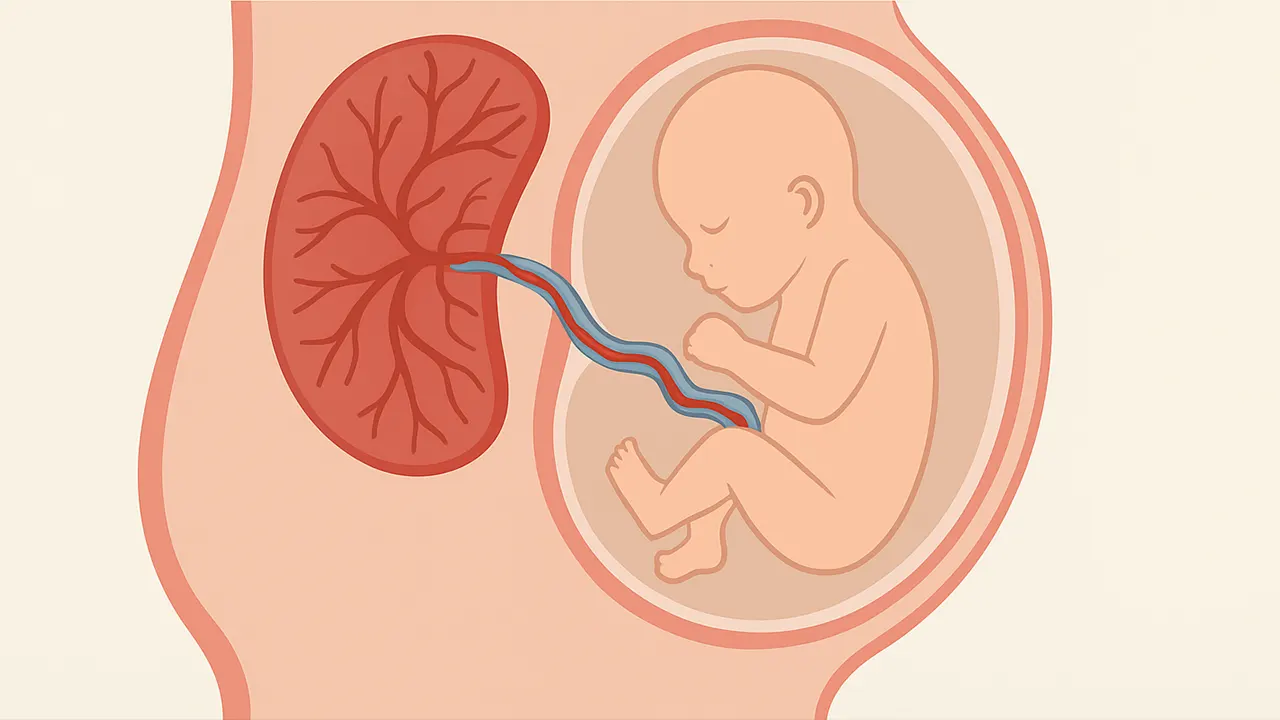Introduction
Surrogacy is a deeply personal and often complex process chosen by individuals and couples facing infertility or other barriers to biological parenthood. Ukraine has become a favored destination for surrogacy due to its supportive legal framework, advanced medical facilities, and relatively lower costs. However, obtaining a birth certificate for a child born through surrogacy in Ukraine involves navigating a detailed legal and bureaucratic process. This article provides a comprehensive guide, exploring every aspect of obtaining a birth certificate for surrogacy cases in Ukraine, covering legal requirements, steps, challenges, and solutions.
Legal Framework for Surrogacy in Ukraine
Ukrainian Surrogacy Laws
Ukraine’s legal framework for surrogacy is one of the most favorable in the world, characterized by clear guidelines and strong protections for all parties involved. Key aspects include:
- Legality of Commercial Surrogacy: Both altruistic and commercial surrogacy are legal. The surrogate mother can receive financial compensation for her services.
- Eligibility Requirements: Only married heterosexual couples are eligible for surrogacy. Single individuals and same-sex couples are currently excluded.
- Surrogacy Agreement: A detailed, legally binding contract between the surrogate mother and the intended parents is required. This agreement outlines the rights and responsibilities of both parties and ensures compliance with Ukrainian law.
- Parental Rights: The intended parents are legally recognized as the parents of the child from birth. The surrogate mother has no legal claims to the child, providing legal security for the intended parents.
Key Legal Documents
Several key documents are essential to the surrogacy process in Ukraine:
- Surrogacy Agreement: This contract must be comprehensive and conform to Ukrainian law, detailing all aspects of the surrogacy arrangement.
- Medical Certificates: Documentation of the medical evaluations and procedures for the surrogate mother and the intended parents.
- Marriage Certificate: Proof of the intended parents’ marital status.
- Identification Documents: Passports
The Process of Obtaining a Birth Certificate
Step 1: Birth Registration
The first crucial step in obtaining a birth certificate is registering the child’s birth at the Civil Registration Office (Vital Statistics). This process involves:
- Hospital Documentation: The hospital provides a medical birth certificate upon the child’s birth. This certificate is crucial for the birth registration process.
- Submission of Documents: The intended parents must submit the following documents to Vital Statistics:
- Medical birth certificate from the hospital.
- Surrogacy agreement.
- Marriage certificate of the intended parents.
- Passports of the intended parents.
- Declaration of Parentage: The intended parents must formally declare their parentage of the child, a straightforward procedure but one that must be handled promptly to avoid delays.
Step 2: Verification by Civil Registration Office
Vital Statistics then undertakes a verification process, which includes:
- Validation of the Surrogacy Agreement: Ensuring the agreement is legally valid and complies with Ukrainian laws.
- Verification of Parental Information: Confirming the identities and marital status of the intended parents through their submitted documents.
- Cross-Checking Birth Information: Ensuring the information on the medical birth certificate matches hospital records.
Step 3: Issuance of Birth Certificate
Once all documents are verified, Vital Statistics issues the birth certificate. This certificate lists the intended parents as the legal parents of the child, without mentioning the surrogate mother. The birth certificate is the primary document for the child’s identity and nationality, essential for further legal procedures such as obtaining citizenship and travel documents.
Role of Agencies and Legal Professionals
Surrogacy Agencies
Many intended parents opt to work with surrogacy agencies that offer comprehensive services, including:
- Matching with Surrogate Mothers: Agencies facilitate the process of finding a suitable surrogate mother.
- Legal Assistance: Agencies often provide legal assistance to help navigate the surrogacy agreement and birth registration processes.
- Medical Coordination: Agencies coordinate all medical procedures, including fertility treatments and prenatal care.
Legal Professionals
Engaging a legal professional specializing in surrogacy is highly recommended. These professionals offer services such as:
- Contract Review and Drafting: Ensuring the surrogacy agreement complies with Ukrainian law and protects the interests of the intended parents.
- Document Preparation: Assisting with the preparation, translation, and submission of all necessary documents.
- Representation: Representing the intended parents in interactions with Ukrainian authorities, which can be particularly valuable in navigating bureaucratic processes.
Important Considerations for Intended Parents
Pre-Surrogacy Preparations
Before starting the surrogacy journey, intended parents should:
- Legal Consultation: Seeking legal advice to understand the entire surrogacy process, legal requirements, and potential challenges.
- Financial Planning: Budgeting for the entire process, including medical, legal, and agency fees. Surrogacy in Ukraine, while affordable compared to many Western countries, still involves significant costs.
- Medical Evaluations: Ensuring all necessary medical evaluations and procedures for both the intended parents and the surrogate mother are planned and scheduled.
Post-Birth Procedures
After the child is born, intended parents should:
- Apply for Citizenship: Contact their home country’s consulate to initiate the process of applying for the child’s citizenship. This may involve submitting the Ukrainian birth certificate and other supporting documents.
- Obtain Travel Documents: Securing a passport and any necessary visas for the child to travel to the intended parents’ home country.
- Follow-Up Medical Care: Arranging for post-birth medical care for the child and, if necessary, for the surrogate mother. This ensures the well-being of all parties involved.
Ethical Considerations and Best Practices
Ethical Surrogacy Practices
While pursuing surrogacy in Ukraine, it is important to adhere to ethical practices to ensure the welfare of all parties involved, particularly the surrogate mother. Key ethical considerations include:
- Informed Consent: Ensuring that the surrogate mother fully understands the terms of the surrogacy agreement and consents to them without any coercion.
- Fair Compensation: Providing fair compensation to the surrogate mother, covering all medical expenses, pregnancy-related costs, and additional compensation as agreed in the contract.
- Health and Welfare: Ensuring the surrogate mother receives comprehensive medical care and psychological support throughout the pregnancy and post-delivery period.
Best Practices for Intended Parents
Intended parents should adopt best practices to ensure a smooth and ethical surrogacy journey:
- Research and Choose Reputable Partners: Select reputable surrogacy agencies and legal professionals with a proven track record in managing surrogacy cases in Ukraine.
- Transparent Communication: Maintain open and transparent communication with all parties involved, including the surrogate mother, medical professionals, and legal advisors.
- Respect and Support: Treat the surrogate mother with respect and provide necessary support, acknowledging her significant role in the surrogacy process.
Detailed Steps in the Birth Certificate Process
Step 1: Preparatory Steps
Before the birth of the child, intended parents should undertake several preparatory steps:
- Legal Consultation: Engaging a legal professional to review the surrogacy agreement and ensure all legal prerequisites are met.
- Document Preparation: Gathering and preparing all necessary documents, including passports, marriage certificates, and medical certificates.
- Establishing Communication Channels: Setting up clear communication channels with the surrogacy agency, the surrogate mother, and relevant Ukrainian authorities.
Step 2: Birth and Initial Documentation
When the child is born:
- Medical Birth Certificate: The hospital will issue a medical birth certificate, which is the first official document for the child.
- Immediate Documentation: The intended parents should collect the medical birth certificate and ensure all details are accurate.
Step 3: Registering the Birth
The birth registration process at Vital Statistics involves:
- Document Submission: Submitting the medical birth certificate, surrogacy agreement, marriage certificate, and passports to Vital Statistics.
- Verification Process: Vital Statistics will verify the authenticity of the documents and ensure compliance with legal requirements.
Step 4: Receiving the Birth Certificate
Once verification is complete:
- Issuance of Birth Certificate: Vital Statistics will issue the official birth certificate, listing the intended parents as the legal parents of the child.
- Review and Collection: The intended parents should review the birth certificate for accuracy before collecting it.
Ethical and Practical Considerations
Ensuring Ethical Surrogacy
To ensure the surrogacy process is ethical:
- Fair Treatment of Surrogate Mothers: Ensuring the surrogate mother is treated with respect and provided with adequate compensation and medical care.
- Informed Consent: Ensuring the surrogate mother fully understands the surrogacy agreement and consents to it without coercion.
Best Practices for Intended Parents
- Selecting Reputable Partners: Choosing reputable surrogacy agencies and legal professionals.
- Maintaining Transparency: Keeping all parties informed and maintaining open communication.
- Providing Support: Offering emotional and financial support to the surrogate mother throughout the process.
Additional Resources
Helpful Contacts
- Ukrainian Civil Registration Office (Vital Statistics): The primary governmental body responsible for birth registration.
- Local Surrogacy Agencies: Agencies that provide comprehensive surrogacy services, including legal and medical coordination.
- Embassies and Consulates: Relevant for international parents to obtain information and assistance regarding citizenship and travel documentation.
Recommended Reading
- “Surrogacy in Ukraine: Legal and Practical Aspects” by O. Koval**: A detailed book on the legal and practical considerations of surrogacy in Ukraine.
- “The International Guide to Surrogacy Law” edited by G. McMillan: A comprehensive guide to surrogacy laws and practices worldwide, including Ukraine.
Online Forums and Support Groups
- Surrogacy UK Forum: A forum where intended parents can share experiences and seek advice.
- Intended Parents Support Group: An online community offering support and information for intended parents undergoing surrogacy.
Conclusion
Obtaining a birth certificate for a child born through surrogacy in Ukraine involves navigating a detailed legal process that requires careful preparation and professional assistance. Understanding the legal framework, preparing the necessary documents, and seeking help from experienced professionals are vital steps in ensuring a smooth process. Despite potential challenges, many international couples have successfully expanded their families through Ukrainian surrogacy, highlighting the importance of thorough preparation and professional support. By following this comprehensive guide, intended parents can navigate the complexities of the surrogacy process in Ukraine with confidence and clarity, ensuring a seamless transition from the birth of their child to securing their legal rights and documentation.


